Connie Lim, better known as MILCK, is the fearless singer and songwriter who turned personal survival into a global battle cry. When her song “Quiet” went viral, it didn’t just make headlines it lit a fire across continents.
From the streets of Ghana to rallies in Sweden. It became an anthem for survivors, earning Billboard’s pick for the #1 protest song of the year and a powerful moment at the ESPYS.

MILCK isn’t stopping at anthems. She’s building revolutions. Whether she’s standing alongside Oprah and Hillary Clinton, collaborating with GRAMMY legends like John Legend and Ani DiFranco or showing up where real change happens like in grassroots campaigns. MILCK is relentless about turning personal pain into collective power.
Now, she’s pushing her storytelling even further, with a groundbreaking new musical led by women, tackling the raw, transformative journey of healing intergenerational trauma.
Ahead of her performance at the Sound Mind Live Benefit Concert on May 18th in Brooklyn, which will be a night dedicated to amplifying mental health awareness, I was fortunate enough to talk with her about music, activism, survival and why healing is the most radical act of all.
Are you ready for a conversation that just might change the way you see (and hear) the world? Well, then i suggest you keep on reading.
Pat: Hi, how are you today?
Milck: I’m doing pretty well. I don’t know if you all know, but I fractured my neck, so I’m headed to physical therapy afterwards. I’m literally in a neck brace lying horizontal right now speaking to you.
Pat: Oh my gosh, You alright? That’s crazy.
Milck: Yeah. Yeah, I can move. No serious damage is done, just pain. I’m on the mend.
Pat: Wow. How’d you do that? If you don’t mind me asking.
Milck: Oh, not at all. I was in Finland for a writing camp and they housed us in this place which was really nice. It had these slippery wooden stairs and I was wearing socks and I was rushing to a writing session and the combination of it all, I slammed my face and the base of my spine like into them after slipping and falling.
Pat: Oh wow.
Milck: So, cracked my neck.
Pat: Well, I’m glad you’re in physical therapy at least and hopefully it heals up correctly and pretty quickly for you.
Milck: Yeah, 4 to 6 weeks. I’m unable to play an instrument right now. So for the Sound Mind thing, I’m going to have an accompanist because I can’t play my own instruments for a while. That will be something new.
Milck: I’m glad to be talking with you.
Pat: Yeah, thanks for taking the time to talk to me on behalf of NYS Music.
Milck: Absolutely.
Pat: Sound Mind Live. It’s a pretty amazing thing to be a part of. Taking music which helps so many people cope with personal struggles and putting it in the foreground of removing the stigma of mental health awareness and self-care. You know, because we all need to find peace in life sometimes.
Milck: Oh my God, exactly.
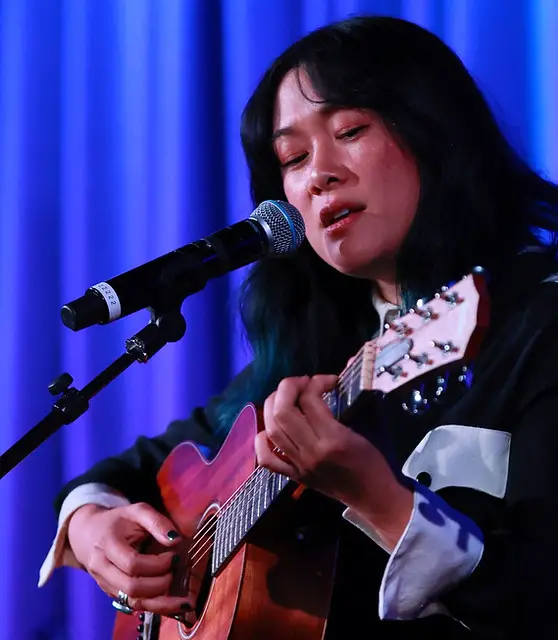
Pat: How did how did your involvement start, how did you get on board with this?
Milck: I’ve been working with Sound Mind for for quite some time now. They’ve had me do a couple of live activations and then a couple of virtual activations and we’ve just really gelled and vibed on the calls beyond just like a you know, one-time interview. It’s like, oh, how can we create together beyond that?
And so conversations just built through this and that and timing just aligned. It all happened pretty naturally.
Pat: Nice, it’s definitely an amazing feeling when things take place organically.
You’ve got a beautiful and powerful voice and to be able to use it for healing and empowerment through music, wow.
What is performing at Sound Mind Live Benefit going to mean to you personally?
Milck: Thank you. That’s really nice of you to say and I would say that it’s a profound thing to be able to do things that really align with my deeper desires to fulfill my purpose on this planet and this feels like that.
It feels like, okay, I have this skill set of singing and this way that I write lyrics and what I care about is very aligned with what Sound Mind is doing.
Milck: So it just felt very kismet. I feel really proud because as an independent artist and I used to be a major label artist, just on the different scales of being an artist, to be able to maintain one’s hold onto one’s purpose on the wings of change is a victory within itself.
Pat: Yeah and in a safe and judgement free space, right?
Milck: YES, Right.
Pat: Speaking of that, being that you bring up lyrics and I like to ask artists this next question, about their music and lyrics. Has there ever been a song that lyrically and obviously songwriting’s very personal, but has there ever been one that you were hesitant to release or maybe even momentarily regretted releasing because the subject matter was so personal and heavy?
Milck: In terms of regretting or like feeling nervous about releasing a song, I have felt nervous about releasing songs. I’m actually kind of a different bird though. I actually feel weird when I release songs that are a little too light.
Pat: Really?
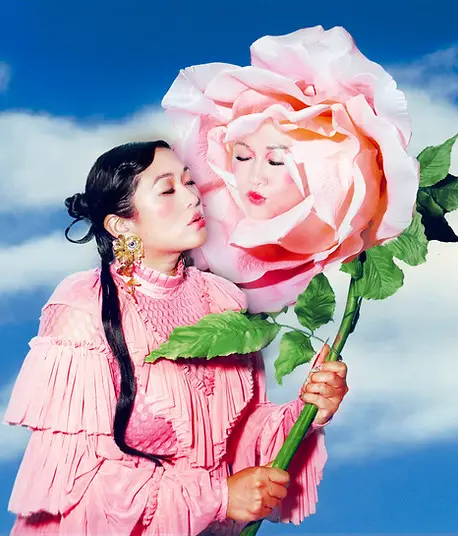
Milck: Like they don’t feel like they scrape the bottom of the barrel enough for me. I feel like I actually have an easier time releasing songs that are more intense because I think music has been a place where I have practiced my own form of protest like from being a kid in a stricter household. Music’s always been a container for things that are deeper and perhaps sometimes even darker for me. So releasing like a an uptempo happy song, those have been hard for me to release. I’m kind of like a different bird in that sense.
Pat: Wow, ok. Quiet is a song like that, right? It seems like Quiet has become kind of an anthem for resilience and solidarity. How do you view the role of that song today and has its meaning for you personally evolved all over time?
Milck: That’s a great question. I feel like my hope for Quiet in terms of what it means to me, my hope is that one day when people listen to it, it just feels really irrelevant because people would just be like so confused, like, oh, there was a time when we were quiet before? It would feel like this archaic far away distant thing. Unfortunately, it’s an 8-year-old song and it’s you know, still unfortunately very relevant.
Pat: Perhaps even more relevant?
Milck: So for me personally that song was my own prayer and call for my self-forgiving and kind of letting go of the blame I put on myself about my sexual assault.
Pat: Sure.
Milck: I had to learn over the course of a couple decades like, oh, it wasn’t my fault. Yeah, so that song freed me. And then I think it became like a song of freeing other people for their own things. So what it really means to me is that I’m not alone. Like I think I felt very isolated much of my youth. And then when I saw how the song connected, it was like something already so personal to me. How its connected with so many people around the world, it just spiritually changed me. It made me have this faith in the fact that like I’m not alone. I’m not like a religious person, but it just feels like this knowing underneath everything that we’re connected.
Pat: Sure, and music is such a beautiful thing for that. It could be cathartic and it’s a release, it’s so many different things to so many different people when they need it. That’s the whole purpose of Sound Mind Live, right? It’s focused on that mental health awareness and you kind of explained some of it right there with the answer about Quiet, but how has your own mental health journey influenced your music, your activism, just everything all encapsulated together?
Milck: I think there’s so many ways to answer that question because it’s such a good one. I’ll kind of tackle it from a couple specific avenues because I think there’s probably 20 ways I could answer this question.
Pat: OK.
Milck: I’ll look at it from the aspect of like me having Persistent Depressive Disorder and also ADHD, those patterns of thinking. So, something that I’ve learned is that people with ADHD are motivated less from their frontal cortex and more from the base of their brains. I mean, like we don’t activate from intellectual knowing that we should do something. We tend to wait for an emotional push from the back of the brain to be like, oh crap, this is important. I think it has shaped how I have made choices in my life, which has led me to becoming a musician because I’ll tell you when I was studying at UC Berkeley, studying pre-law, I would open the law textbook and within 1 minute I’d be falling asleep. But then when I would go into the recording studio, I could be there for 10 hours and feel like I could keep going because I was hitting on something emotional and urgent.
I’ve always followed my body and I’ve had to listen to my body and actually surrender to the habits of my brain.
It actually has limited the work the or types of professions I could pursue because the ones that were drier and had less emotional motivation. I feel like I would not succeed. I’d miss meetings, I’d forget things, like when I was an intern and I just always felt so bad about myself.
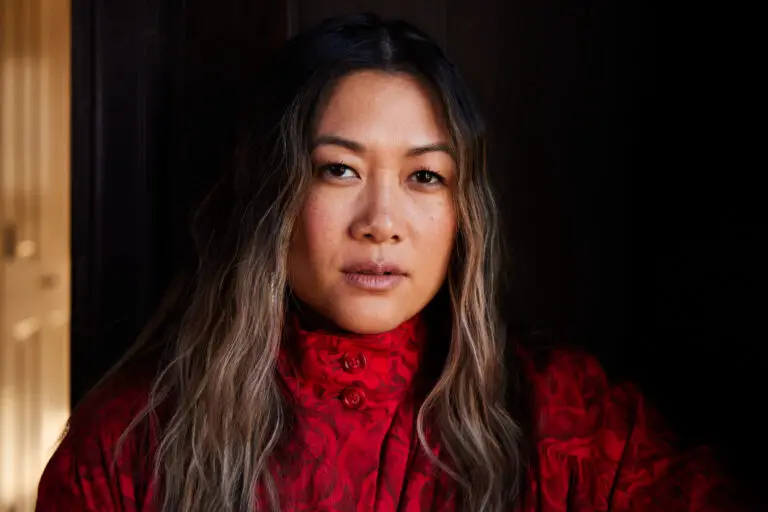
Pat: So, it took you a while to find your place then?
Milck: Yeah, but then when I found this specific thing that had this emotional urgency of like, Oh, I’m showing up beyond what other people are showing up with and that type of journey can feel isolating for a lot of people. It can make a lot of people feel ashamed.
Pat: Yeah, I can identify with that myself because being a photographer, I work to try to capture emotions too, but just in a different format than music. You know, in the spirit of sharing and disclosure I suffer from crazy anxiety. I have major anxiety and for me, having a camera just separates me enough from everything else in the world or what’s happening around me. Viewing everything through a lens is safe for me. It calms me.
I can only assume it’s kind of that same thing with songwriting or playing music, I would think with you.
Milck: Uh-huh. Yeah, it’s true. It makes a difference. Also, with my persistent depressive disorder like I don’t know if people will know what that is, but I love talking about it cuz a lot of people don’t understand it, but my base level mood and emotion is um lower than the average mood. And then I have swings up and down and below the median level of emotions. That type of emotional state makes it harder for me to be really social and extroverted and high energy. I found with the industry like high-energy extroverted musicians tend to succeed in the major label system more so than the introverted and more depressive artists. Of course there are some who really succeed cuz the music just transcends. But I did find that I went from, you know having a team of myself, then going viral, and working with a team of like 14 people at a major label, I really struggled to to maintain my energy levels and I didn’t know how to set boundaries for myself to maintain a creative lifestyle as I was navigating like really extroverted personalities in a in a system that I’m still trying to understand. So that’s a that’s a big one, in terms of mental health in the music industry.
Pat: In terms of one’s mental health in general really. Boundaries are so important, of course. There are times of figuring out your own self and your comfort zones with situations and life.
Milck: Absolutely.
Pat: Aside from music, are there specific things that you find yourself doing just to kind of keep your own mental health in check and balanced? Throughout the throes of touring and being on the road and just finding a way to keep it all together, What’s the key?
Milck: Breathing! Breath work is very powerful and effective for me and physical activities. Movement with the body like stretching, walking, running, and Mother Nature. So I’d say breath, body, and Mother Nature. Those are like the top three that really help me. Then the fourth is like doodling. Doodling, I love illustrating and stuff, but doodling helps me stay present. If I’m just like illustrating my surroundings, it just helps me center and ground.
Pat: It’s incredible that you know your routines and releases to kind of keep balanced because a lot of people are still trying to figure themselves out, for themselves. It’s hard to be transparent and open about it or even ask for help because people are afraid of the stigma.
Milck: Yes. So it’s taken me a long time. I also use medication. Medication has been a really helpful tool because when I was younger, I was like I’ll yoga, meditate and journal my way through this. It could get me so far, but the depths of depression that I’d slip to just took me weeks to crawl out. So if someone wants to like keep up with this society. Meditation and medication can help. It’s almost like training wheels on a bike. That’s been helpful for me.
Pat: I just recently kind of started meditating in conjunction with medication for my anxiety. I started doing guided meditations just to kind of lower my anxiety levels and for health reasons. There is always just so much to deal with in life and again, there’s just such a stigma around these things. You didn’t talk about these things when I was a kid.
Milck: Yeah.
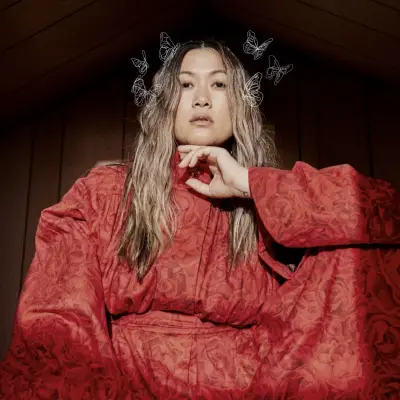
Pat: What conversations around mental health do you wish were happening more often, openly in communities in general? How do you breach the subject or pitch those services to people?
Milck: Okay, so I’m going to say something and you’ll probably have more insight into this, but I’m going to speak in general terms of gender right now.
Pat: Ok, go for it.
Milck: I really hope that there can be more grace and compassion for male populations. Like for them to have more conversations and to help regulate each other and to be supportive so that some of the more aggressive tendencies that get put out into society can be quelled. I think from my observations as a woman, I have way more societal permission to be vulnerable, to cry, to share my issues with my female peers, my women peers. I’m might be using this terminology and it’s wrong, so forgive me.
Pat: No, no you’re fine.
Milck: I have found with my guy friends, my guy family members that the isolation that happens with them in general just creates a lot of pain that I think is then reverberated through relationships and community and the uh structures. My hope is that there’s more permission for men to be vulnerable. That’s like my main hope right now.
Pat: Well, you’re definitely right with the way that society views the gender roles between men and women. For a man to be vulnerable it’s generally construed as a sign of weakness.
Milck: Exactly. I think women could help understand like I think we sometimes can check ourselves. There’s a lot of things that we have to navigate, yes, and other truths that exist at the same time. Sometimes we are blindsided. We have blind spots as to how we can create more space for our male counterparts to have room to soften as well.
Pat: Absolutely. I mean, we’re all supposed to be in this together right? There are so many polarizing figures, situations and issues that are focused on fueling these fires in our society rather than solving them.
Milck: Yeah, like okay, this will be this will probably piss some people off, but I don’t think it’s productive for us to be talking about like toxic masculinity. I feel like maybe we can use a word like imbalanced masculinity or imbalanced femininity. Like maybe there are other words that we can explore. As a songwriter, I just love the power of words, how it can change the mood of a room.
Pat: Right.
Milck: I’m kind of done with this limited language that we’re using cuz it’s time to move forward and I think we’re getting stuck in these silos. I think we’re devolving. I think these conversations that you and I are having right now are probably happening elsewhere.
Pat: Hopefully. They have to be.
Milck: So that’s my hope is I just want to call people in and not call people out cuz it’s just not working.
Pat: That’s a beautiful way to put it, calling them in versus calling them out. I don’t think I’ve ever heard anybody say it like that before.
Milck: Yeah, my friend says that. Calling people in instead of calling them out. I heard it from Amanda Gorman, that poet, but my other friend, she said it also.
She’s religious and she said God creates on a spectrum for everything. And I was like I love that because it applies elsewhere like we’re talking about gender, but also like political views. I’m so annoyed that I have two boxes to be in.
It’s either blue or red, right or left. I’m so much more than these boxes and we are all so much more and it’s just limiting our conversations, it’s making us have assumptions about each other which affects our mental health.
Pat: No one feels safe to talk to each other. To really talk to each other anymore.
Milck: Yes! and once we dispel that, we can have better conversations with each other and maybe like breathe a little bit, you know? It’s like taking a pair of tight jeans off at the end of the day.
It’s like, “Oh gosh, this feels so much better.”
Pat: Well, people need to be able to speak these things so they can find peace in the panic.
Milck: I love what you say about finding peace in the panic. I made this Instagram post about a Republican woman asking me if she could sing the song Quiet and I was just so astounded by that question.
I was like, “Wow, we’ve gotten to a point where like art is divided between right and left.”
I mean if we can’t use art or common issues between women to unite us, I don’t know where we’re headed.
Then just seeing the comments, I was terrified to release that post cuz I know people are like, that if they voted for XYZ, then they are XYZ. Is that where we’re at right now? Am I forced to think in more binaries cuz I’m really tired of zeros and ones and binaries. I want to be free.
Pat: Yeah, absolutely. We’re covering a lot of ground and I know we don’t have too much more time.
What’s the message or feeling that you’re hoping that the audience is going to take home with them after both your set and from the Sound Mind Live Festival in general?
Milck: I hope people will feel closer to themselves and have more moments of compassion and trust with themselves and I’m trusting that this will reflect to other people around them. So just helping people feel a little better. More calm. Maybe it helps their central nervous system to just feel a little more calm and more hope.
Pat: Is there anything you’re currently working on either creatively or personally that’s bringing you joy right now or a sense of growth?
Milck: Yeah, I have a song called Sisters of Winter, that is coming out May 2nd. I did just a simple post of me singing it in response to everything I’m seeing on the news and It’s made the rounds on Instagram and has tracked lots of views. I’m releasing that in May.
Pat: Nice.
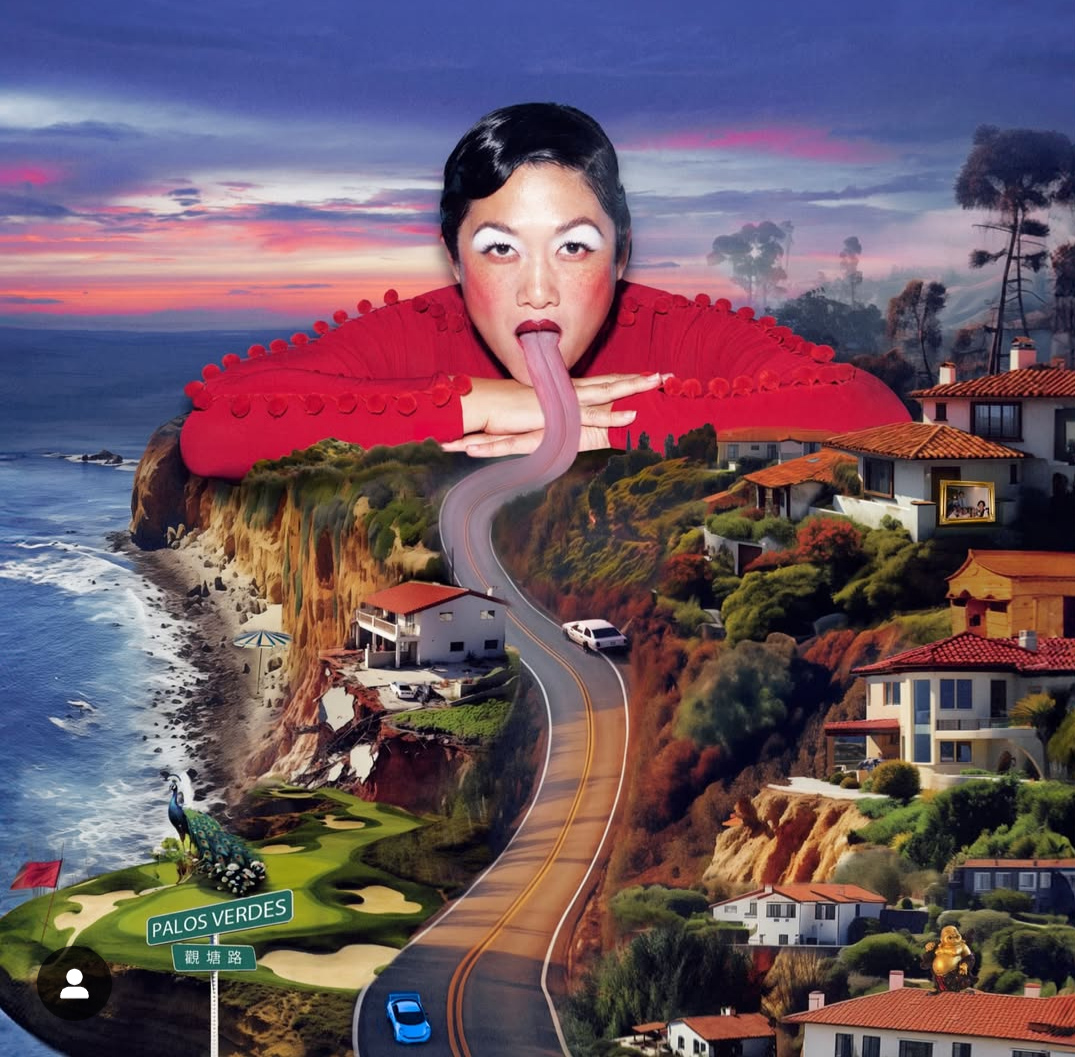
Milck: I’m feeling we tapped into I don’t know, I guess the creative spirit and there’s a lot of good art that’s on its way.
Pat: Well I’m definitely excited to shoot your set because I’m doing photography for Sound Mind Live. So I’m excited to be there and be a part of this. A small part of this event.
Milck: Oh yeah, that’s so cool.
Pat: Yeah, I’ll shoot your set, American Authors and Borns and everything that is happening there. Taking pictures of healing in real time.
Milck: Amazing. I’d love to meet you.
Pat: Yes, absolutely. Let’s catch up there. I’d love that.
One last question before I let you go. What do you want to say right now to anybody who’s struggling in life? A message of hope or any words of empowerment to leave everybody with?
Milck: I think if someone’s suffering in this moment, um I would say it’s so courageous to grieve. There’s a poet, Ross Gay, who says, “The denial of grief costs us too much. It robs us of our humanity and our ability to see what we need next.”
So if someone is grieving, I’d say like good job, you’re being brave in feeling those feelings. I don’t know the answers beyond that, but the fact that you’re grieving and acknowledging it is so brave.
Pat: That is such a great answer. You articulate everything so well.
I definitely appreciate your time.
Milck: Thank you so much.
Pat: Take care of your neck and good luck with the physical therapy today. I will see you in a few weeks at Sound Mind Live in NYC.
Milck: Yes. Thank you.
Pat: Thank you, talk soon.
Milck: Bye-bye
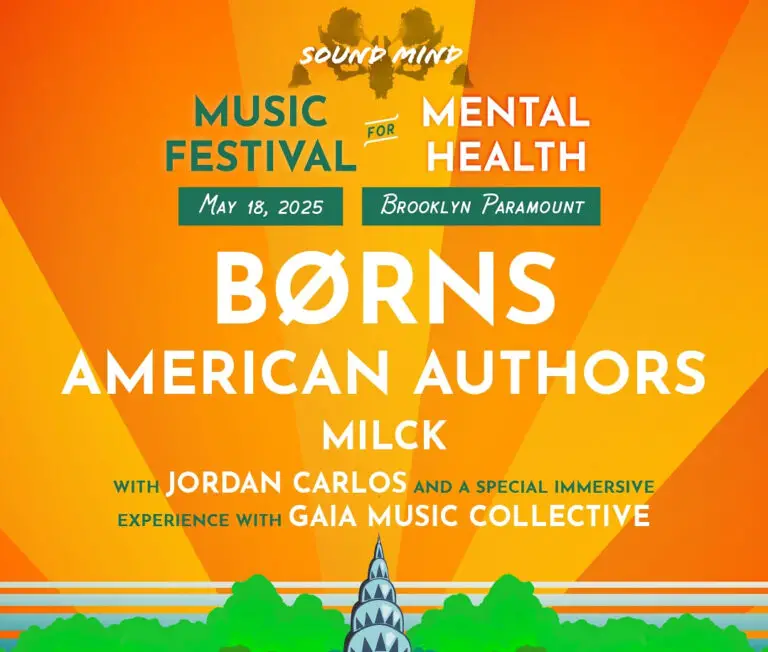


Comments are closed.